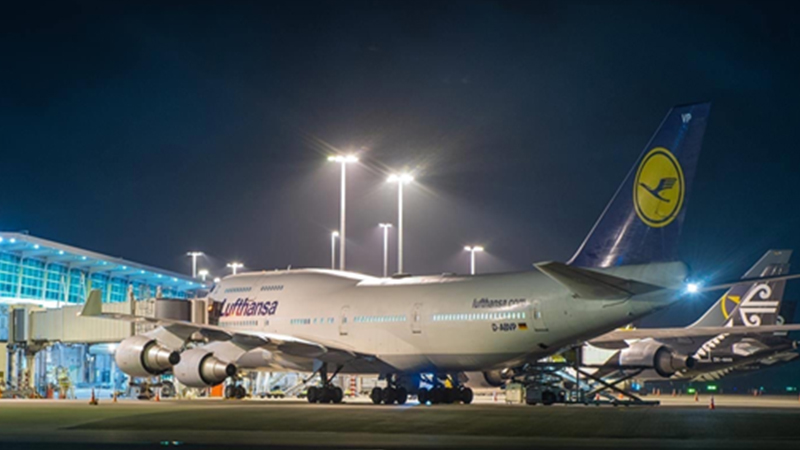Lufthansa Group airlines repatriate 90,000 German and EU citizens to Europe so far
FRANKFURT: Lufthansa Group airlines have so far repatriated 90,000 Germans and other EU citizens to Europe who were stranded in different parts of the world amid the global travel ban to prevent the spread of the Coronavirus pandemic.
Lufthansa Group said 437 special flights departed from 106 airports worldwide—from New Zealand all the way to Chile – all on their way Europe. In addition to that, the Group also operated 94 cargo special flights with relief supplies on board.
The governments of Germany, Austria, Switzerland and Belgium in particular, but also tour operators and cruise lines have ordered these return flights from Air Dolomiti, Austrian Airlines, Brussels Airlines, Edelweiss, Eurowings, Lufthansa and SWISS. Lufthansa’s last special flight arrived in Frankfurt on April 20 from Lima, Peru.
To date, Eurowings has also already operated 27 so-called “harvest helper flights” with around 2,500 passengers on board, with nine more are currently planned.
Lufthansa and Eurowings have been commissioned by the Federal Foreign Office in Berlin to fly more than 34,000 Germans and EU citizens back to Germany from their holiday homes and places of residence, some of which are very far away. Among the passengers was a girls’ choir from Hamburg, flown home from Baku, Azerbaijan. The return flights were planned, prepared and carried out as charters within only a few days. In some cases, passengers from the destination country were also on board the outward flight.
Lufthansa Group said the challenge was more than carrying out an enormous number of individually planned special flights, which already exceeded the usual annual average for Lufthansa: Since around 40 airports were not regular Lufthansa Group destinations, additional personnel for handling, catering, and accommodation for cockpit and cabin crew, fuel and maintenance had to also be organized in a very short amount of time.
The local embassies and diplomatic representations as well as the German Foreign Office also provided support, especially with regard to the necessary overflight and traffic rights. Further challenges included local curfews, rapidly changing restrictions and partly already closed airports.
COVID-19, which has no cure yet, had already infected nearly 3 million people across the world and killed more than 203,000.


